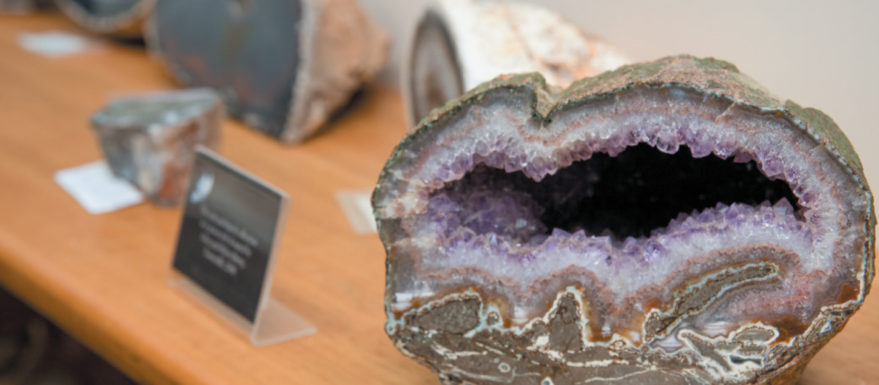The wonder of learning

Childhood is meant to be a time of wonder, of exploration, provocation and inquiry, a time when investigations spark new interests and a life-long passion for learning. This is why The Cathedral School’s Junior School Directors of Teaching and Learning, alongside Ben Dallimore, Technologies Integrator, Luke Baills, Head of Junior School and Ranita Whebal, Librarian, have created a new space dedicated to inspiring wonder, aptly named the Wonder Hub.
In late March, The Cathedral School opened its exciting new Wonder Hub. The hub includes an artefact room, a maker space, a clean construction zone (Lego, Meccano, etc.) and a collaboration zone, with a long-term vision to include a kitchen garden outside. This intriguing new space aligns with the Junior School’s commitment to inquiry based, student focused teaching approach. Wanting to know more, we caught up with Rachael Hood, Director of Teaching and Learning (Year 3 to 6) and Amanda Banister, Director of Teaching and Learning (Kindergarten to Year 2).
Success Why did you decide to create the Wonder Hub?
Amanda At Cathedral, we’ve always held on to inquiry-based learning as the centre of learning. Children have always had a lot of scope and choice and time to get to deeper understanding. For us, the Wonder Hub seemed like a natural evolution. We really wanted to resource what we were already doing to a higher level.
Rachael Amanda and I saw there was more we could be doing to promote that higher order thinking and development of skills in our students.
Success How will the Wonder Hub improve learning for young students at the school?
Amanda It will add layers of thinking. It will bring learning and thinking to the forefront, where children are talking about their thinking. It will offer students the time and resources to get to deep knowledge about a topic, rather than skimming across the surface of content.
Rachael It will also help develop students’ skills – skills like the growth mindset, resilience, and developing intrinsic motivation.
Success The Wonder Hub will be used as a space for visiting experts to further students learning. What types of experts will you invite into the space?
Amanda We will have experts such as geologists, palaeontologists,people from the community that children can tap into through their interests and project work, to get another layer of expertise to add to the students’ thinking around what they’re doing.
Rachael For example, we have people from Bunnings come to the Wonder Hub and run workshops with students. Workshops could be on sustainability, or whatever student needs are identified through their learning.
Success The hub includes a maker space; what are the children making?
Rachael Nothing to do with craft! It’s to do with design and construction. Students might be given a challenge or provocation to design a bird that can move or fly or speak, or they might have a learning challenge to build a hand that is robotic. There will be a design phase then a construction. It’s really about developing that higher order thinking.
Success You have recently adopted the Walker Learning Approach throughout the Junior School. How has this changed student learning?
Amanda At the heart of it, Walker Learning Approach is simply personalised learning, so we teach each person in front of us, not a class full of people. We’ve always been an inquiry-based school, so the jump to Walker Learning was more of a little step.
Rachael Walker Learning is very student focused – it’s about where the student is, where they need to go to next, and it’s based on student interest. Part of the Walker Learning Approach is ‘focus children,’ which is a way of making sure every child within the classroom is seen and the teacher builds a relationship with that child.
Success Have the day-to-day layout or workings in the classroom changed?
Amanda Teachers are now more intentional about what they’re putting in their classrooms. Tables don’t dominate classrooms, children’s workspaces are flexible, and children don’t have allocated seating. This gives children choice – for comfort, for groupings, and for engagement.
Rachael It helps enrich the decision-making process.
Amanda Every class has reflection time timetabled for the last half hour of every day, in every classroom, with few exceptions, so the day’s learning can’t get lost. That enables the teacher and the class to reflect on their learning in a very detailed way, and in a way that children can then recall to their parents.
Success How does the Wonder Hub fit in with Walker Learning?
Amanda Walker Learning puts children at the centre of learning; the starting point is the child in terms of their readiness and their interests. The Wonder Hub space provides another avenue for intentional teaching and learning.
Rachael It supports the early years investigations and the upper years educational research projects beautifully.
Amanda Both Walker Learning and the Wonder Hub are about engaging children instead of managing children.
The Cathedral School is holding an Open Day on May 19.
A. 154 Ross River Road, Mundingburra Ph. 07 4722 2000






